February 10 stands as one of history’s most eventful days, witnessing the rise and fall of empires, groundbreaking discoveries, and moments that shaped our modern world across centuries of human achievement.

Politics and Government Events on February 10
1920 – Poland’s Symbolic Wedding to the Sea
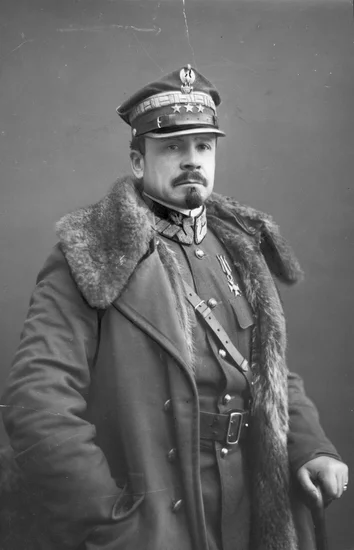
Józef Haller de Hallenburg performed the symbolic wedding of Poland to the sea, celebrating the nation’s restored access to maritime waters. This ceremonial act marked Poland’s regained independence and territorial integrity after World War I.
The symbolic ritual represented Poland’s triumph over centuries of partition and foreign domination. Maritime access became crucial for Poland’s economic development and strategic position in European politics.
1920 – Schleswig Plebiscite Results
Approximately 75% of Zone I’s population voted to join Denmark in the historic Schleswig plebiscites. This democratic referendum resolved territorial disputes that had persisted since the Second Schleswig War.
The overwhelming Danish victory redrew European borders through peaceful means rather than military conquest. The plebiscite established important precedents for self-determination in post-war territorial settlements.
1967 – Twenty-Fifth Amendment Ratified
The Twenty-Fifth Amendment to the United States Constitution received ratification on this date. This crucial amendment established clear procedures for presidential succession and disability determinations.
The amendment addressed constitutional gaps exposed by President Kennedy’s assassination and previous presidential health crises. It provided mechanisms for vice-presidential appointments and temporary power transfers during presidential incapacity.
1989 – Ron Brown Elected DNC Chairman
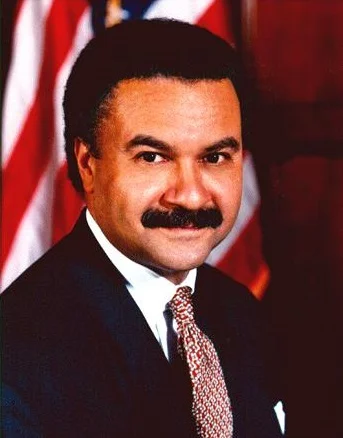
Ron Brown won election as chairman of the Democratic National Committee, becoming the first African American to lead a major political party. His historic victory broke significant barriers in American political leadership.
Brown’s chairmanship transformed Democratic Party operations and messaging strategies during a crucial period. His leadership helped modernize party infrastructure and broaden its appeal across diverse constituencies.
2003 – NATO Procedure Breakdown
France and Belgium broke NATO’s silent approval procedure regarding protective measures for Turkey during potential Iraqi conflict. This unprecedented action exposed deep divisions within the Atlantic alliance.
The diplomatic crisis threatened NATO’s consensus-based decision-making processes and revealed fundamental disagreements about Middle Eastern intervention. The incident highlighted growing tensions between American and European strategic priorities.
Military and Naval History on February 10
1906 – HMS Dreadnought Christened
HMS Dreadnought, the first revolutionary battleship of its class, received its christening ceremony. This groundbreaking vessel rendered all existing battleships obsolete through superior firepower and speed.
The Dreadnought’s launch triggered a global naval arms race that reshaped maritime warfare. Her innovative design established new standards for battleship construction and naval strategic thinking.
1936 – Battle of Amba Aradam Launched
Italian forces initiated the Battle of Amba Aradam against Ethiopian defenders during the Second Italo-Abyssinian War. This massive offensive represented Italy’s determined push to complete its African colonial conquest.
The battle demonstrated modern mechanized warfare’s devastating impact on traditional Ethiopian forces. Italian victory advanced Mussolini’s imperial ambitions and Ethiopia’s resistance to European colonization.
1939 – Nationalist Victory in Catalonia
Spanish Nationalist forces concluded their conquest of Catalonia and sealed the French border. This decisive victory effectively ended Republican resistance in northeastern Spain.
The fall of Catalonia marked the Spanish Civil War’s final phase and crushed Republican hopes for foreign intervention. Thousands of refugees fled across the French border, creating a humanitarian crisis.
1943 – Battle of Krasny Bor
Soviet Red Army forces engaged German troops and Spanish volunteers in the Battle of Krasny Bor. This fierce engagement aimed to completely lift the devastating Siege of Leningrad.
The battle demonstrated international involvement in the Eastern Front through Spanish Blue Division participation. Soviet offensive operations intensified pressure on German forces defending the Leningrad corridor.
1964 – Melbourne-Voyager Naval Collision
Aircraft carrier HMAS Melbourne collided with destroyer HMAS Voyager off New South Wales, sinking the smaller vessel. This tragic accident killed 82 sailors and shocked the Australian naval establishment.
The collision represented Australia’s worst peacetime naval disaster and prompted extensive safety reforms. Subsequent investigations revealed communication failures and procedural deficiencies that contributed to the catastrophe.
Science and Discovery Milestones on February 10
1996 – Deep Blue Defeats Kasparov
IBM’s supercomputer Deep Blue achieved its first victory against world chess champion Garry Kasparov. This historic moment marked artificial intelligence’s breakthrough in strategic game-playing capabilities.
The computer’s triumph demonstrated machine learning’s potential to master complex human intellectual activities. Deep Blue’s victory sparked widespread debates about artificial intelligence’s implications for human cognitive superiority.
2009 – Satellite Collision in Orbit
Communications satellites Iridium 33 and Kosmos 2251 collided in orbit, destroying both spacecraft. This unprecedented accident highlighted growing concerns about space debris and orbital congestion.
The collision created thousands of debris fragments that threatened other satellites and space missions. The incident prompted international discussions about space traffic management and debris mitigation strategies.
2021 – Texas Power Crisis Begins

Texas experienced its worst energy infrastructure failure as the 2021 power crisis commenced. Extreme winter weather overwhelmed the state’s electrical grid, causing widespread blackouts.
The crisis exposed vulnerabilities in Texas’s deregulated energy market and inadequate winterization measures. Millions of residents lost power and heat during record-breaking freezing temperatures.
Cultural and Arts Events on February 10
1923 – Texas Tech University Founded
Texas Technological College, later known as Texas Tech University, was established in Lubbock, Texas. This institution would grow to become a major research university serving West Texas.
The university’s founding reflected Texas’s commitment to higher education expansion during the early twentieth century. Texas Tech eventually developed into a comprehensive research institution with significant regional impact.
2021 – Rio Carnival Canceled
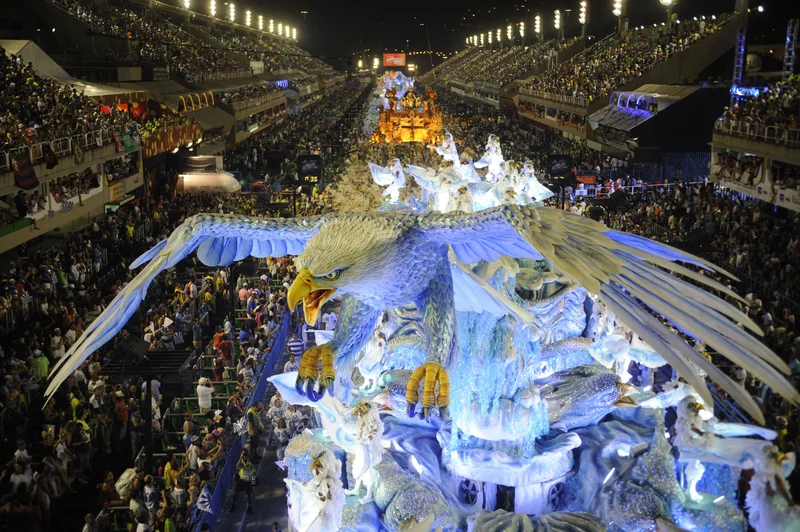
Rio de Janeiro’s traditional Carnival was canceled for the first time due to the COVID-19 pandemic. This unprecedented decision affected Brazil’s most famous cultural celebration and tourism industry.
The cancellation demonstrated the pandemic’s profound impact on global cultural traditions and economic activities. Rio’s Carnival typically attracts millions of visitors and generates substantial revenue for local businesses.
Religious and Social Events on February 10
1940 – Soviet Deportations from Poland
The Soviet Union began mass deportations of Polish citizens from occupied eastern Poland to Siberia. These forced relocations affected hundreds of thousands of people and constituted war crimes.
The deportations represented Stalin’s systematic effort to eliminate Polish national identity and resistance. Families were separated and transported to harsh labor camps in remote Soviet territories.
1984 – Wagalla Massacre
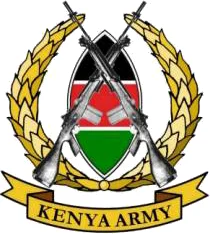
Kenyan soldiers killed an estimated 5,000 ethnic Somali Kenyans in the Wagalla massacre. This atrocity represented one of Kenya’s worst human rights violations and highlighted ethnic tensions.
The massacre occurred during government operations against Somali separatists in northeastern Kenya. The incident remained largely hidden from international attention for decades due to media restrictions.
2013 – Kumbh Mela Stampede
Thirty-six people died and 39 were injured in a stampede during the Kumbh Mela festival in Allahabad, India. This tragedy occurred during one of the world’s largest religious gatherings.
The stampede highlighted safety challenges associated with massive religious festivals and crowd management. Despite improved safety measures, such incidents occasionally mar these significant spiritual events.
Business and Economic Events on February 10
1972 – Ras Al Khaimah Joins UAE
Ras Al Khaimah became the seventh emirate to join the United Arab Emirates, completing the federation. This decision strengthened the UAE’s political unity and economic integration.
The emirate’s inclusion enhanced the UAE’s territorial integrity and resource base. Ras Al Khaimah’s membership contributed to the federation’s stability and regional influence.
2016 – Kaesong Complex Shutdown
South Korea decided to halt operations at the Kaesong joint industrial complex with North Korea. This closure responded to North Korea’s satellite launch and escalating tensions.
The shutdown ended a rare example of inter-Korean economic cooperation that had operated for over a decade. The complex’s closure significantly impacted both Korean economies and diplomatic relations.
Transportation and Infrastructure on February 10
2004 – Fokker 50 Crash in Sharjah
Forty-three people died and three were injured when a Fokker 50 aircraft crashed near Sharjah International Airport. This aviation accident highlighted ongoing safety challenges in regional air travel.
The crash prompted investigations into aircraft maintenance standards and pilot training procedures. Such incidents emphasize the importance of rigorous safety protocols in commercial aviation.
2018 – Hong Kong Bus Accident
Nineteen people died and 66 were injured when a Kowloon Motor Bus double-decker overturned in Hong Kong. This tragic accident shocked the territory and prompted safety reviews.
The incident led to enhanced bus safety regulations and driver training programs. Hong Kong’s public transportation system underwent significant safety improvements following this disaster.
Sports and Recreation on February 10
1933 – Boxing Tragedy at Madison Square Garden

Primo Carnera knocked out Ernie Schaaf in round 13 of their boxing match at Madison Square Garden. Schaaf died four days later from injuries sustained in the bout.
This tragic death highlighted boxing’s inherent dangers and sparked debates about fighter safety regulations. The incident contributed to evolving medical protocols and safety measures in professional boxing.
Notable Births on February 10
1901 – Stella Adler Born

American actress and educator Stella Adler was born, destined to become one of the most influential acting teachers. Her innovative methods would revolutionize American theater and film performance.
Adler’s approach emphasized emotional truth and imagination over purely mechanical technique. She trained countless actors who achieved prominence in Hollywood and Broadway productions.
1927 – Leontyne Price Born
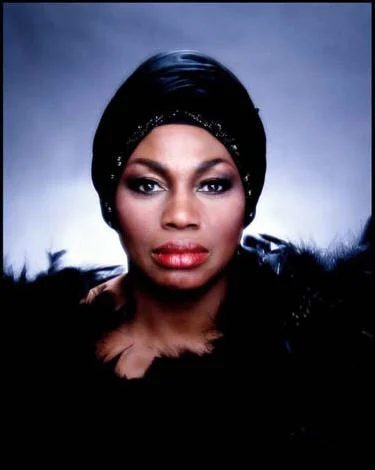
American operatic soprano Leontyne Price entered the world, becoming one of the greatest voices in opera history. Her exceptional talent would break racial barriers in classical music.
Price’s career achievements included starring roles at the Metropolitan Opera and international acclaim. She became a trailblazer for African American performers in classical music venues.
1929 – Jerry Goldsmith Born
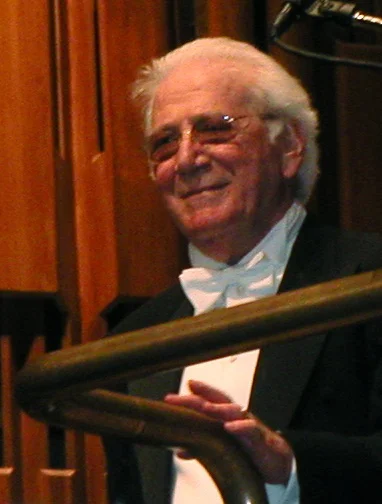
American composer Jerry Goldsmith was born, destined to create some of cinema’s most memorable musical scores. His innovative compositions would define modern film music.
Goldsmith’s career spanned decades and included iconic scores for science fiction, thriller, and adventure films. His musical innovations influenced generations of film composers.
1931 – Robert Wagner Born

American actor Robert Wagner was born, becoming a prominent figure in television and film. His career would span multiple decades and establish him as a entertainment industry icon.
Wagner’s versatility allowed him to succeed in various genres from drama to comedy. His performances in both movies and television series earned widespread recognition.
1950 – Mark Spitz Born
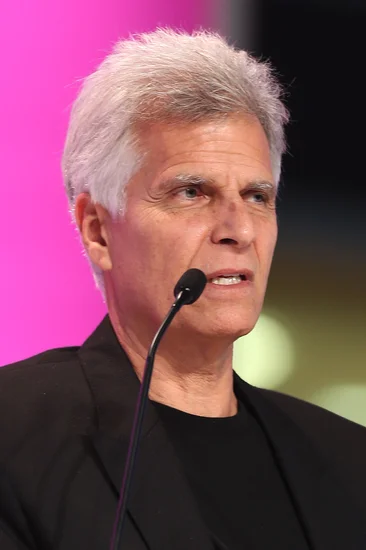
American swimmer Mark Spitz was born, destined to become one of Olympic history’s greatest athletes. His achievements would set new standards for swimming excellence.
Spitz’s seven gold medals at the 1972 Munich Olympics stood as a record for decades. His performances revolutionized competitive swimming and inspired future generations of athletes.
1961 – George Stephanopoulos Born
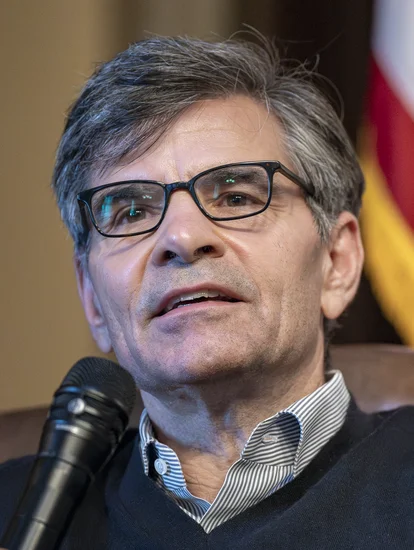
American television journalist George Stephanopoulos was born, becoming a prominent political commentator and news anchor. His career would bridge politics and media.
Stephanopoulos transitioned from political advisor to respected journalist, hosting major television news programs. His insights and interviewing skills established him as a leading media figure.
1967 – Laura Dern Born

American actress Laura Dern was born, becoming one of Hollywood’s most respected performers. Her versatile acting abilities would earn critical acclaim and numerous awards.
Dern’s career encompasses independent films and major blockbusters, showcasing her remarkable range. Her performances consistently demonstrate depth and authenticity across various genres.
1974 – Elizabeth Banks Born

American actress Elizabeth Banks was born, becoming a successful performer, director, and producer. Her career would span comedy, drama, and behind-the-camera work.
Banks’ versatility extends from acting to directing major Hollywood productions. Her contributions to entertainment include both comedic performances and serious dramatic roles.
Notable Deaths on February 10
1923 – Wilhelm Röntgen Dies
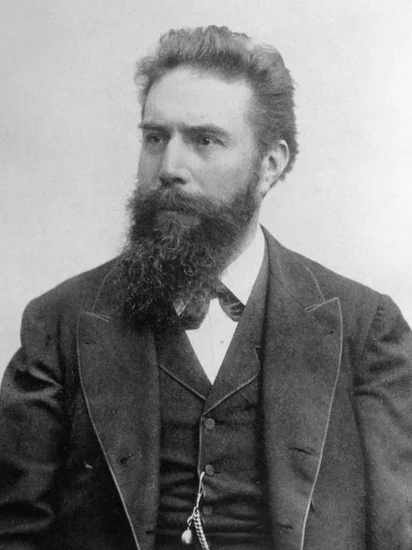
German physicist Wilhelm Röntgen, discoverer of X-rays and Nobel Prize laureate, died at age 77. His revolutionary discovery transformed medical diagnosis and scientific research.
Röntgen’s X-ray discovery opened new frontiers in medical imaging and physics research. His work laid foundations for modern radiology and numerous scientific breakthroughs.
1939 – Pope Pius XI Dies
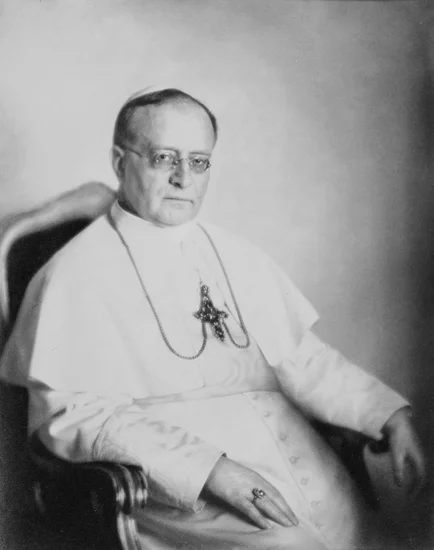
Pope Pius XI passed away after leading the Catholic Church through tumultuous times. His papacy addressed rising fascism and significant social changes worldwide.
The Pope’s death occurred during a period of increasing international tensions and religious persecution. His leadership had guided the Church through complex political and social challenges.
1957 – Laura Ingalls Wilder Dies
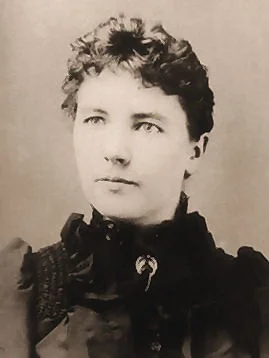
American author Laura Ingalls Wilder died, leaving behind beloved children’s literature about frontier life. Her autobiographical novels captured American pioneer experiences.
Wilder’s “Little House” series became classics of American children’s literature and cultural history. Her writings preserved important narratives about westward expansion and rural life.
1992 – Alex Haley Dies
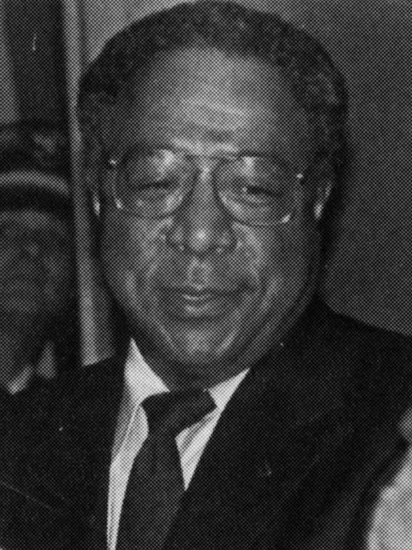
American author Alex Haley died, remembered for his groundbreaking work “Roots” about African American family history. His research transformed understanding of slavery’s impact.
Haley’s genealogical investigations connected African American families to their ancestral heritage. His work sparked widespread interest in genealogy and African American history.
2005 – Arthur Miller Dies
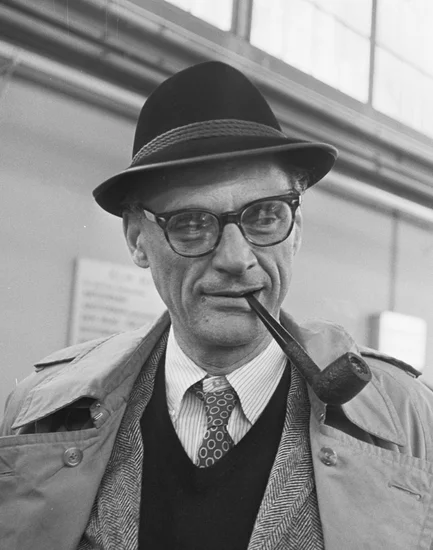
American playwright Arthur Miller died, leaving behind masterworks that defined American theater. His plays examined moral conflicts and social issues with profound insight.
Miller’s dramas including “Death of a Salesman” and “The Crucible” became American classics. His work explored themes of integrity, responsibility, and individual conscience.
2014 – Shirley Temple Dies

American actress and diplomat Shirley Temple died, remembered as a child star who brought joy during the Great Depression. Her later diplomatic career demonstrated remarkable reinvention.
Temple’s films provided escapism and hope during difficult economic times in American history. Her transition from entertainment to public service showcased her versatility and commitment.
Holidays and Observances on February 10
Feast of St. Paul’s Shipwreck
Malta observes the Feast of St. Paul’s Shipwreck, commemorating the apostle’s dramatic arrival on the island. This religious celebration marks a pivotal moment in Maltese Christian history.
The feast combines religious devotion with cultural tradition, featuring processions and special church services. Maltese communities worldwide maintain this important spiritual observance.
Fenkil Day
Eritrea commemorates Fenkil Day, marking the Second Battle of Massawa during the independence struggle. This national holiday celebrates military victory and national liberation.
The observance honors fallen fighters and celebrates Eritrean sovereignty after decades of conflict. Fenkil Day represents determination and sacrifice in the pursuit of independence.
National Memorial Day of Exiles and Foibe
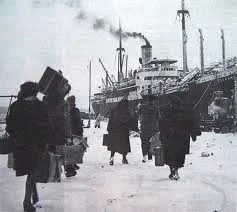
Italy observes National Memorial Day of the Exiles and Foibe, remembering victims of post-World War II persecution. This solemn commemoration addresses difficult historical truths.
The memorial day acknowledges suffering experienced by Italian populations in former Yugoslav territories. It promotes historical awareness and reconciliation efforts.
